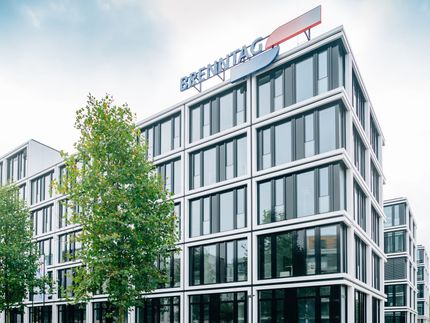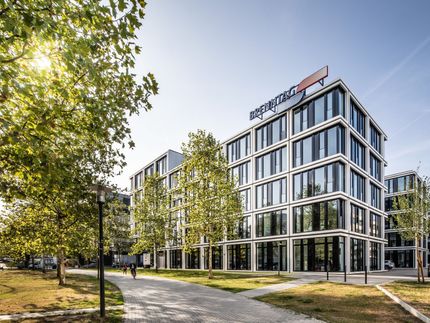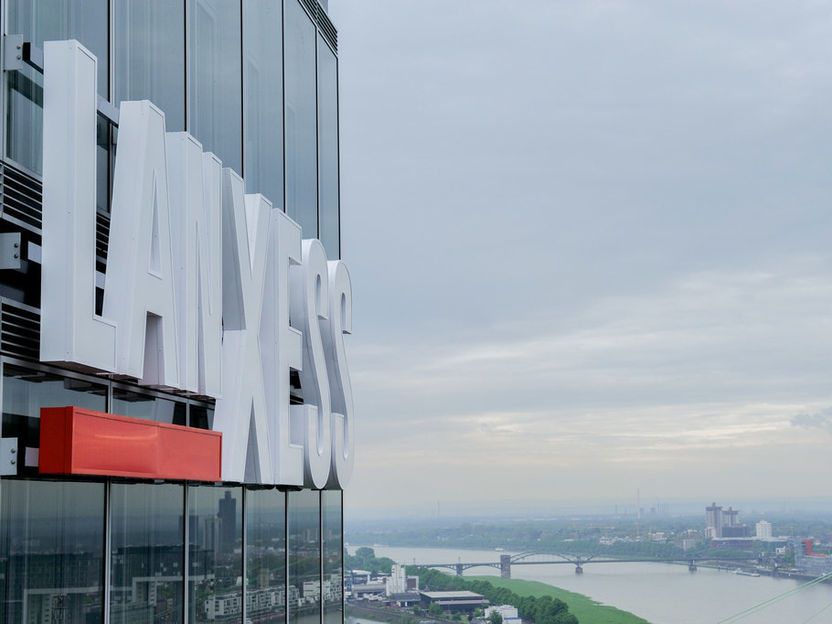BASF Group increases EBIT before special items compared with second quarter of 2020
Mainly driven by good business development in September
Advertisement
In an environment that continues to be shaped by the global economic impact of the coronavirus pandemic, BASF Group’s income from operations (EBIT) before special items rose considerably compared with the previous quarter: At €581 million in the third quarter of 2020, it was €355 million higher than in the second quarter of 2020. “This significant increase was mainly driven by good business development in September,” said Dr. Martin Brudermüller, Chairman of the Board of Executive Directors of BASF SE.

Headquarters of the BASF Group - Ludwigshafen
BASF
On October 9, BASF had already published preliminary figures for the third quarter 2020 and released an outlook for the full year 2020. In connection with the publication of the Quarterly Statement for the third quarter of 2020, Brudermüller and Chief Financial Officer Dr. Hans-Ulrich Engel provided further details.
BASF Group sales of €13.8 billion were down slightly by €745 million compared with the third quarter of 2019. This was mainly driven by negative currency effects in all segments, but especially in the Agricultural Solutions and Surface Technologies segments. Lower volumes, particularly in the Chemicals segment due to the unplanned outage at the steam cracker in Port Arthur, Texas, also contributed to the sales decrease. Higher price levels overall, primarily due to higher precious metal prices in the Surface Technologies segment, had an offsetting effect. Portfolio effects, especially in the Materials segment from the acquisition of Solvay’s integrated polyamide business, likewise had a positive impact on sales. Compared with the second quarter of 2020, sales increased by €1.1 billion.
EBIT before special items declined considerably year on year, by €475 million to €581 million. This was mainly attributable to a considerably lower contribution from the Chemicals segment. EBIT before special items also declined considerably in the Nutrition & Care segment, Other, and in the Materials and Agricultural Solutions segments. The Industrial Solutions and Surface Technologies segments posted slight decreases.
Special items in EBIT amounted to minus €3.2 billion in the third quarter of 2020. These primarily related to impairments totaling €2.8 billion in all segments due to the economic effects of the coronavirus pandemic and to restructuring measures. In addition, provisions of €313 million were recognized for the realignment of the Global Business Services unit. EBIT amounted to minus €2.6 billion, considerably below the prior-year quarter (€1.3 billion).
Compared with the third quarter of 2019, income from operations before depreciation, amortization and special items (EBITDA before special items) decreased by €438 million to €1.5 billion. EBITDA declined by €1.2 billion to €1 billion.
Net income decreased to minus €2.1 billion, compared with €911 million in the prior-year quarter. Earnings per share amounted to minus €2.31 in the third quarter of 2020 (Q3 2019: €1.00). Earnings per share adjusted for special items and amortization of intangible assets amounted to €0.60 (Q3 2019: €0.89).
Cash flows from operating activities amounted to €2.1 billion in the third quarter of 2020, €102 million above the figure for the prior-year quarter despite the €3 billion decline in net income. The decrease in net income was largely attributable to the non-cash-effective impairments. Free cash flow rose from €1.1 billion in the prior-year quarter to €1.4 billion as a result of higher cash flows from operating activities in conjunction with lower payments made for property, plant and equipment and intangible assets.
Developments by region
Sales at BASF companies located in Europe declined by 12% compared with the third quarter of 2019. This was primarily due to lower volumes, especially in Other and in the Materials segment. Compared with the prior-year quarter, sales in North America declined by 6%. This was mainly driven by lower volumes, especially in the Chemicals segment due to the unplanned outage at the steam cracker in Port Arthur, Texas. Compared with the third quarter of 2019, BASF improved sales in the Asia Pacific region by 10%. This was largely attributable to higher volumes in almost all segments. In the region South America, Africa, Middle East, sales were down 9% from the prior-year quarter. This was primarily due to negative currency effects in all segments, especially in the Agricultural Solutions segment.
BASF Group outlook for 2020
In the third quarter of 2020, the global industrial economy recovered from the sharp downturn in the previous quarter. However, global production levels were still around 3% lower than in the prior-year quarter. The automotive industry, which was particularly strongly affected by the production closures in the second quarter of 2020, was still down around 2% from the prior-year period in the third quarter of 2020. Demand for durable consumer goods picked up. Demand for consumables such as food and care products, some of which saw stronger demand as a result of the pandemic, gradually returned to normal. Following the dynamic recovery effects in the third quarter, momentum is expected to slow in the remaining months of the year.
BASF’s assessment of the global economic environment in 2020 is therefore as follows (figures rounded to the nearest half a percentage point):
- Growth in gross domestic product: –5.0%
- Growth in industrial production: –5.0%
- Growth in chemical production: –2.5%
- Average euro/dollar exchange rate of $1.15 per euro
- Average annual oil price (Brent crude) of $40 per barrel
BASF’s forecast assumes that severe restrictions on economic activity to contain the coronavirus pandemic, such as lockdowns, are not reintroduced. For the fourth quarter of 2020, BASF now expects a further improvement in the BASF Group’s EBIT before special items compared with the third quarter of 2020.
For the full year 2020, the BASF Group expects a slight decline in sales compared with the previous year, mainly due to weaker demand as a consequence of the coronavirus pandemic. BASF anticipates a considerable decline in EBIT before special items for 2020. As well as weaker demand, the company expects pressure on margins to continue, especially for basic chemicals, which will be partially offset by fixed cost savings.
For the 2020 business year, BASF therefore expects sales of €57 billion to €58 billion, EBIT before special items of between €3.0 billion and €3.3 billion and a return on capital employed (ROCE) of between 0.0% and 1.0%.






























































